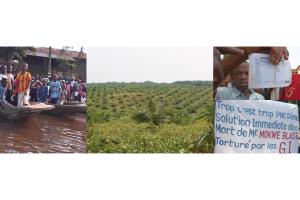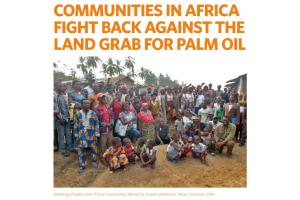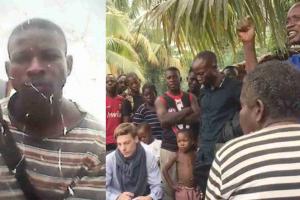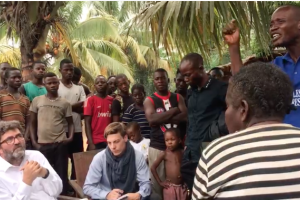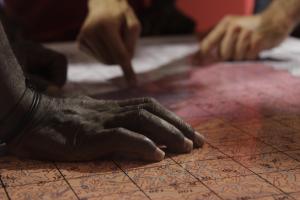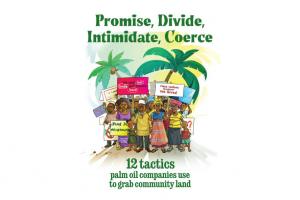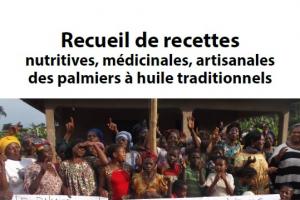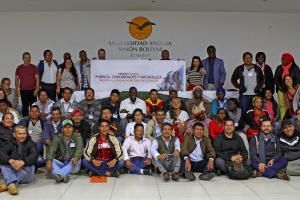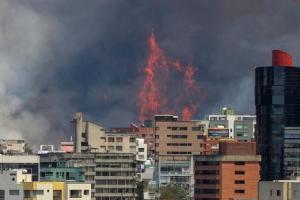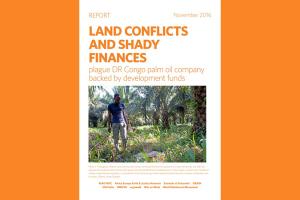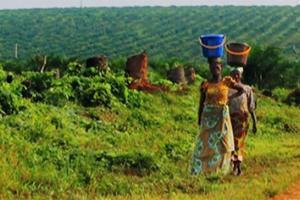Struggles Against Tree Monocultures
Corporate profit drives land grabs to install industrial tree monocultures. Where industrial plantations take root, communities' territories and lives are violently invaded, their forests destroyed and their water polluted. When communities resist, companies tend to respond with aggression. Despite this extreme violence, communities around the world are resisting, organizing and joining forces to defend their territories. Every September 21 the International Day of Struggle against Monoculture Tree Plantations is celebrated.
A new report on the state of industrial oil palm plantations in Africa shows how communities are turning the tide on a massive land grab in the region.
In a statement released on 14 August 2019, RIAO-RDC and support organisations call on DRC authorities to immediately find and arrest the murder suspect. Weeks have passed since the killing of Joël Imbangola Lunea without an arrest of the murder suspect.
We ask for your urgent support. Please sign on to the Action Alert. It is important to send the letter as soon as possible.
A member of the Congolese environmental and human rights organisation RIAO-RDC was brutally killed by a security guard of the Canadian palm oil company Feronia Inc. on Sunday, July 21, 2019, near the company’s Boteka plantations in Bempumba, Eqauteur Province, DRC.
The expansion of oil palm and logging in Wimbí is a fact. And in both cases, the protagonist is the same: the land trafficker who allowed the palm company, Energy & Palma, to enter. This new cycle of dispossession threatens the culture and survival of the community.
Only available in French.
In Ecuador, the expansion of industrial oil palm plantations is the main cause of deforestation. A meeting to exchange knowledge, the first of its kind in Ecuador, brought together leaders from oil palm-affected provinces from the three regions of the country.
Since the native vegetation that surrounded Quito was destroyed to make way for eucalyptus and pine plantations, the forest fires that the city faces year after year have been intensifying.
The report is also available in German, in Lingala and Swahili.
